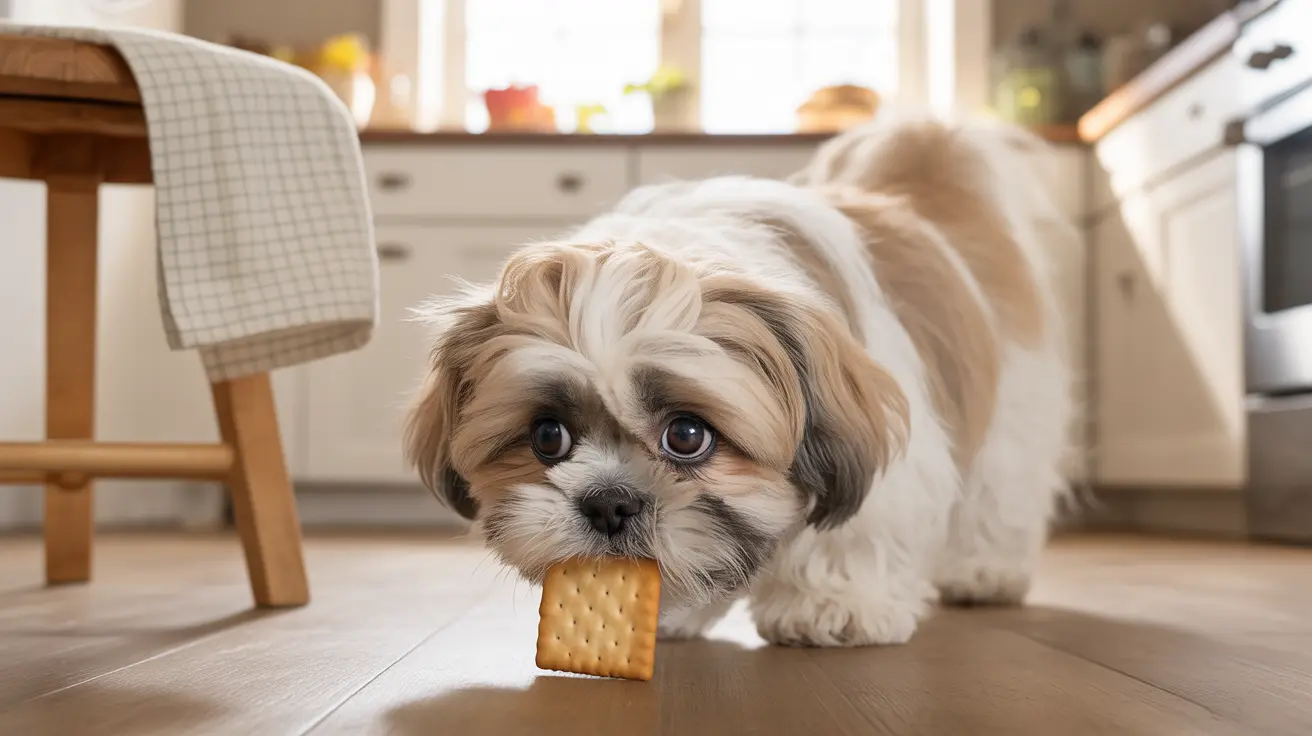Many dog owners wonder if sharing their favorite snacks with their furry friends is safe. Wheat Thins, a popular whole grain cracker, often raises questions about whether they're appropriate for canine consumption. While not immediately toxic to dogs, these crackers come with several important considerations for pet owners.
In this comprehensive guide, we'll explore the safety, risks, and nutritional implications of feeding Wheat Thins to dogs, helping you make informed decisions about your pet's treats.
Understanding the Safety of Wheat Thins for Dogs
Wheat Thins are technically not toxic to dogs in small amounts. However, these crackers are designed for human consumption and contain several ingredients that aren't ideal for canine health. A dog accidentally consuming one or two crackers likely won't experience immediate harm, but regular consumption can lead to various health issues.
Potentially Harmful Ingredients
Several components of Wheat Thins make them problematic for dogs:
- High sodium content (200+ mg per serving)
- Added sugars (4-5g per serving)
- Artificial preservatives and flavors
- Possible garlic or onion powder in flavored varieties
- Processed wheat and refined carbohydrates
Health Risks Associated with Feeding Wheat Thins to Dogs
Short-term Risks
Immediate concerns from consuming Wheat Thins may include:
- Excessive thirst due to high sodium content
- Digestive upset
- Temporary gastrointestinal discomfort
- Possible allergic reactions in sensitive dogs
Long-term Health Concerns
Regular consumption of Wheat Thins can lead to more serious health issues:
- Weight gain and obesity
- Diabetes risk from added sugars
- Dental problems
- Sodium-related health complications
- Potential nutritional imbalances
Better Alternatives for Dog Treats
Instead of Wheat Thins, consider these healthy treat options for your dog:
- Fresh carrots
- Apple slices (without seeds)
- Plain, cooked chicken pieces
- Commercial dog treats formulated for canine nutrition
- Green beans
- Blueberries
When to Contact Your Veterinarian
While occasional consumption of a Wheat Thin isn't usually cause for alarm, contact your veterinarian if your dog exhibits:
- Vomiting or diarrhea
- Excessive thirst or urination
- Signs of allergic reactions
- Unusual lethargy
- Loss of appetite
Frequently Asked Questions
Can dogs have Wheat Thins crackers, and are they safe for consumption?
While not immediately toxic, Wheat Thins are not safe for regular dog consumption. They contain high levels of sodium, sugar, and artificial additives that can be harmful to dogs. Occasional accidental consumption of one or two crackers usually won't cause immediate harm in healthy dogs, but they should not be given as regular treats.
What are the potential health risks if my dog eats Wheat Thins regularly?
Regular consumption of Wheat Thins can lead to obesity, diabetes, dental problems, and sodium-related health issues. The high salt content can cause excessive thirst and potential sodium toxicity, while artificial additives may trigger allergic reactions or digestive problems.
Why are Wheat Thins not a recommended treat for dogs despite being non-toxic?
Wheat Thins are not recommended because they're processed human food with no nutritional benefit for dogs. They contain unnecessary ingredients like added sugars and sodium, artificial preservatives, and may include harmful substances like garlic or onion powder in flavored varieties.
How can I identify if my dog is allergic to wheat or has a grain intolerance after eating Wheat Thins?
Signs of wheat allergy or grain intolerance include itching, ear infections, gastrointestinal upset (vomiting or diarrhea), excessive paw licking, and skin inflammation. If you notice these symptoms after your dog consumes Wheat Thins, consult your veterinarian.
What are some healthier alternatives to Wheat Thins that I can give as treats to my dog?
Healthy alternatives include fresh vegetables like carrots and green beans, small pieces of plain cooked meat, apple slices (without seeds), blueberries, and commercially produced dog treats specifically formulated for canine nutrition. Always introduce new treats gradually and in moderation.
Conclusion
While Wheat Thins aren't immediately dangerous to dogs in small amounts, they're far from an ideal treat choice. Focus on providing your dog with nutritionally appropriate treats designed for canine health, and always consult your veterinarian about the best treat options for your specific pet's needs.






